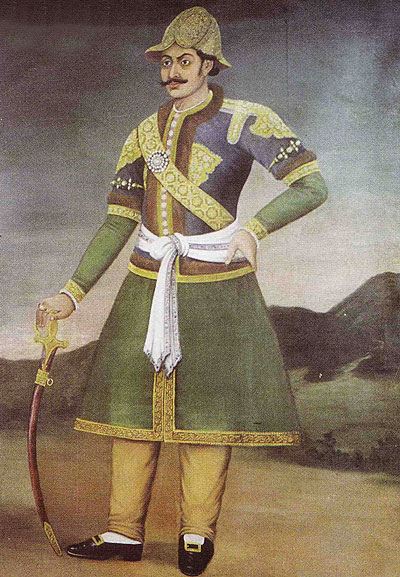As quoted in book Thapa Politics in Nepal: With Special Reference to Bhim Sen Thapa, 1806–1839 https://books.google.com.np/books?id=7PP1yElRzIUC&dq=bhimsen+thapa&source=gbs_navlinks_s|
Famous Bhimsen Thapa Quotes
“The Chinese once made war upon us, but were reduced to seek peace.”
To King Girvan Yuddha Bikram Shah as quoted in book History of the political and military transactions in India during the administration of the Marquess of Hastings, 1813–1823, Vol 1 https://books.google.com/books?id=Tq1jAAAAMAAJ&source=gbs_navlinks_s|
Context: Through the influence of your good fortune, and that of your ancestors, no one has yet been able to cope with the state of Nepal. The Chinese once made war upon us, but were reduced to seek peace. How then will the English be able to penetrate into the hills? Under your auspices, we shall by our own exertions be able to oppose to them a force of fifty-two lakhs of men, with which we will expel them. The small fort of Bhurtpoor was the work of man, yet the English being worsted before it, desisted from the attempt to conquer it; our hills and fastnesses are formed by the hand of God, and are impregnable. I therefore recommend the prosecution of hostilities. We can make peace afterwards on such terms as may suit our convenience.
“…irrespective of castes, creeds or position in the society, all are same in the eyes of law.”
As quoted in page 184 of book Thapa Politics in Nepal: With Special Reference to Bhim Sen Thapa, 1806–1839 https://books.google.com.np/books?id=7PP1yElRzIUC&dq=bhimsen+thapa&source=gbs_navlinks_s|
